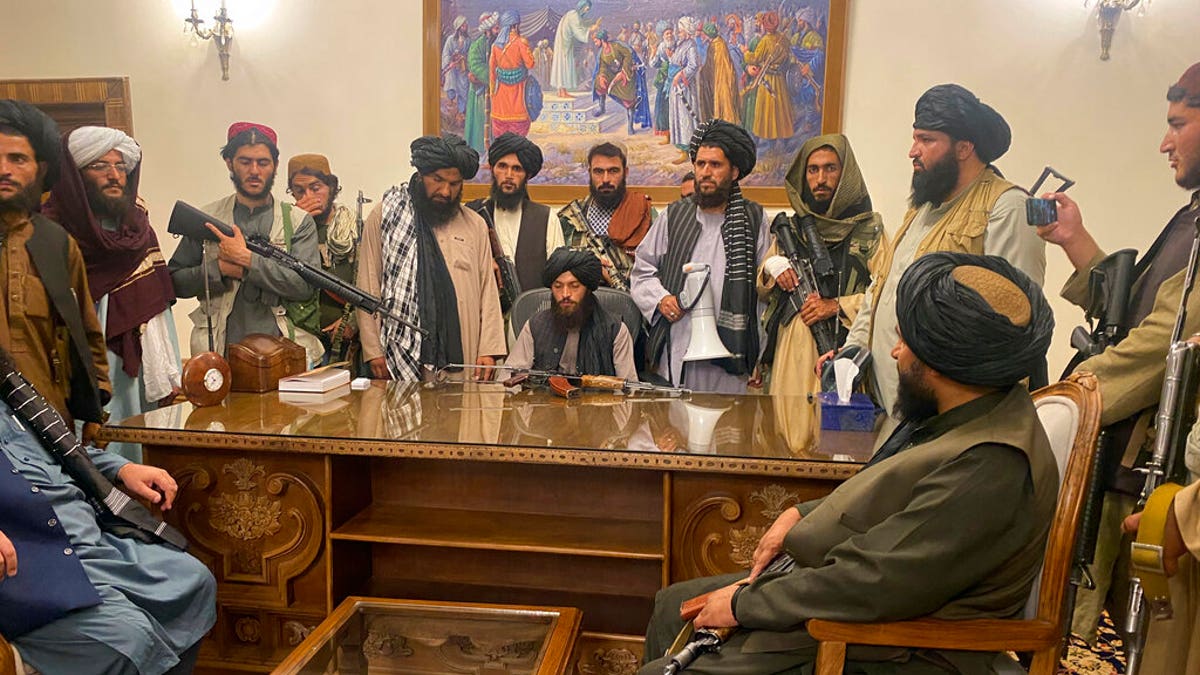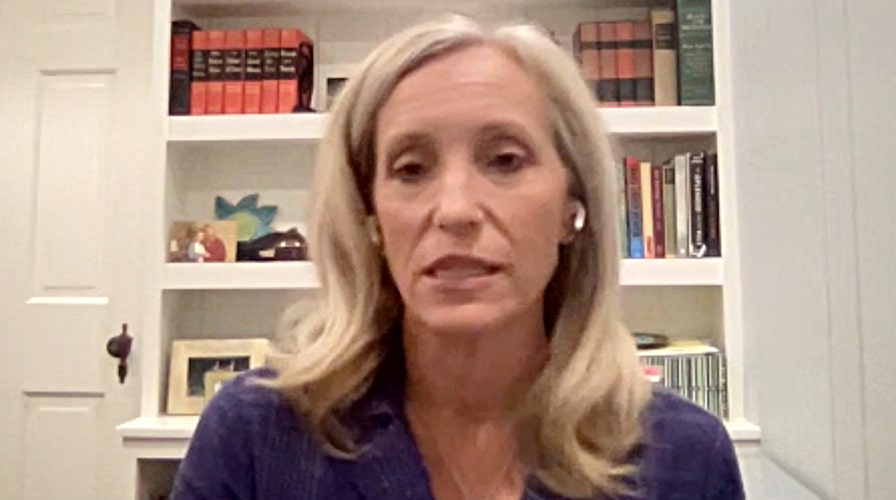Despite a catastrophic U.S. withdrawal from Afghanistan and bureaucratic red tape hindering outside rescue efforts along the way, non-government groups have been and are still working to help bring U.S. citizens and stranded Afghan allies to safety.
Among those at greatest risk under Taliban rule are women, who make up roughly half the country’s population and were severely oppressed during the Islamist group’s previous time in power in the late 1990s, according to Ambassador Kelley Eckels Currie, the former U.S. ambassador-at-large for global women’s issues and now a member of the Vandenberg Coalition foreign policy think tank.
"[The Taliban] are basically promising to treat them like a little less subhuman, essentially," she told Fox News Tuesday. "And it's not acceptable. And it's not going to be acceptable to these women who've over the past 20 years become used to being professionals, being able to participate in public life, go to school, hold jobs or work as police officers, work in the military, work as judges and lawyers, engineers."
It really made me angry at what had been done, and how poorly they have been treated by people who claim to be advocates for women and advocates for women's rights to see how badly they have treated these Afghan women who are incredibly vulnerable and incredibly brave
And those same women now feel the most vulnerable, she said, especially lawmakers, judges and prosecutors who put terrorists and militants in jail – even as the Taliban has said it is offering a blanket amnesty to Afghans who worked with U.S. forces and that it will respect women’s rights, under sharia.
"It is quite delusional on the part of the administration to kind of take the Taliban's word for anything at this point," she said. "This administration has been more than willing to take the Taliban's word for all sorts of things, including the security and safety of American citizens. And we know for a fact that there have been incidents where the Taliban has beaten those American citizens, beaten their families and not allowed them to go forward into to the airport. And so I don't know why we would expect the Taliban to live up to very basic, very poorly constructed promises around women's rights."
Working with a coalition of private-sector groups and NGOs, which she declined to name individually citing safety concerns on the ground, Currie and other aid workers for the past two weeks have been helping evacuees reach Kabul’s airport.
But once there, their efforts have been, in some occasions, stymied by the bureaucracy, she said. And even refugees who have been flown out of the country are still facing stacks of paperwork, uncertainty and shifting requirements.
Currie’s group organized buses to take roughly 700 Afghans, women and their families, to the airport, maintaining communications with the State Department, vetting the evacuees in advance and sharing passenger lists for the buses.
"The State Department was aware of the groups we were trying to assist," Currie said. "I was told that this information had been raised at the highest levels; we had very senior people reaching out to State leadership."
That included at least one message sent to Secretary of State Antony Blinken, she said. And she personally wrote a note to Undersecretary of State for Management Ambassador John Bass.
"If we got a reply, it was either low levels or nothing at all," she said.
THESE ARE THE US SERVICE MEMBERS KILLED IN THE KABUL AIRPORT ATTACK
This administration has been more than willing to take the Taliban's word for all sorts of things, including the security and safety of American citizens. And we know for a fact that there have been incidents where the Taliban has beaten those American citizens, beaten their families and not allowed them to go forward into to the airport. And so I don't know why we would expect the Taliban to live up to very basic, very poorly constructed promises around women's rights.
Authorities told the group to wait in a staging facility for 24 hours before the State Department reversed course and said it couldn’t help fly them out.
Among them were a group of divorced women who are prominent female politicians, she said, prime targets for Taliban persecution.
"They were so hopeless," she said, tearing up as she told their story. "It was so…it really made me angry at what had been done, and how poorly they have been treated by people who claim to be advocates for women and advocates for women's rights to see how badly they have treated these Afghan women who are incredibly vulnerable and incredibly brave."
AFGHANISTAN CRISIS: CHRISTIAN VETERAN'S NONPROFIT HELPS SAVE 8 LIVES FROM TALIBAN TERROR

FILE - In this Aug. 15, 2021 file photo, Taliban fighters take control of Afghan presidential palace in Kabul, Afghanistan, after President Ashraf Ghani fled the country. (AP Photo/Zabi Karimi, File)
A number of measures, had they been taken in advance, could have averted the chaotic U.S. pullout, she said.
Keeping U.S. forces stationed at Bagram Air Base until civilians had been evacuated, cutting Obama-era bureaucratic red tape that hobbled the special immigrant visa process to get allies out of the country in advance and being prepared to shelter not just the applicants but their families.
"We can't function this way and expect to be a successful country to be a successful government," she said. "Something has got to change."
In some instances, groups seeking to evacuate consisted of a mix of U.S. citizens, legal permanent residents, SIV applicants, and other at-risk individuals. But the State Department treated them differently, Currie said, rather than as single groups.
AIR FORCE RESERVIST CREW HELPS AFGHAN WOMAN DELIVER HEALTHY BABY GIRL ON FLIGHT TO FREEDOM
"Instead of treating this family as all needing evacuation, the citizen was told, you can go, but you have to leave all these other people behind, forcing these American citizens to make what amounts to these just unimaginable choices to leave a mother or a sister or a vulnerable child," she said. "How do you ask people to do that to their family? And how do you do that with a clear conscience?"
As the Taliban encircled Kabul earlier this month, President Biden and Secretary Blinken were on vacation, downplaying concerns over the Taliban’s rapid conquering of provincial capitals. And U.S. officials have repeatedly blamed the country’s chaos on the Afghan National Army’s failure to fend off the Taliban’s lightning offensive, not the administration’s planning
"I was on vacation at the start of this crisis, too, and I ended up working 22 hours a day since Aug. 14," she said. "I did this voluntarily. It wasn't my job. It was their job, and they didn't do it, and they failed."
CLICK HERE TO GET THE FOX NEWS APP
Before U.S. forces toppled the Taliban in 2001 in response to the Sept. 11 terror attacks, the group had forbidden women from working, going to school or going out in public without a male chaperone. Women were also forced to conceal their appearance under stifling burqas.
Human rights groups fear a return to that kind of oppression, although the Taliban has pledged to uphold women’s rights – in accordance with sharia law.
Fox News' Matt Leach and Teny Sahakian contributed to this report




